Webtoons are constantly evolving. They are sometimes dramatized as creative works such as films and TV shows. Sometimes they get a technological upgrade. They also inspire merchandise that gives readers a chance to personally experience their virtual world. Given webtoons’ unlimited potential, we will explore how far that expansion has taken them.
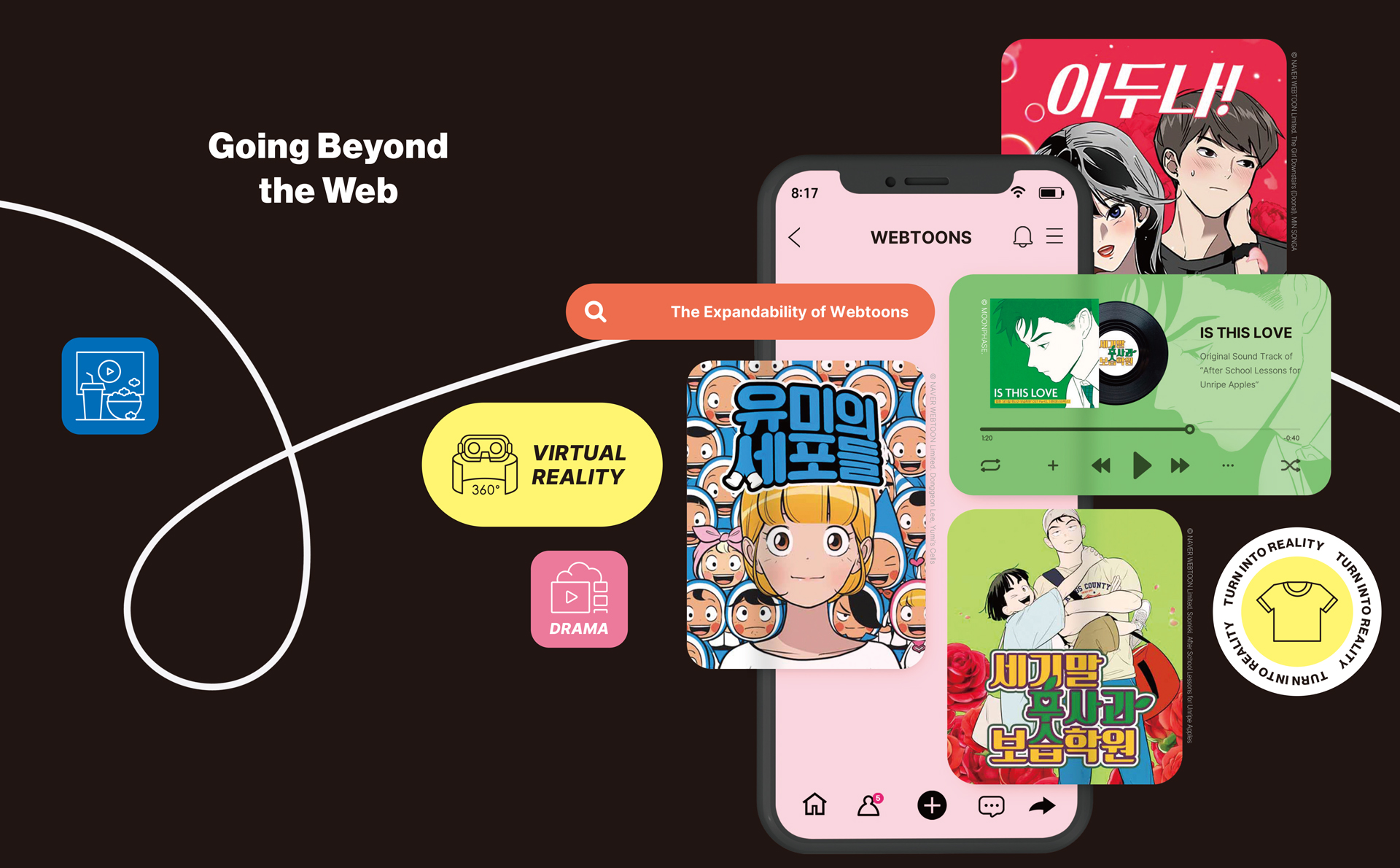
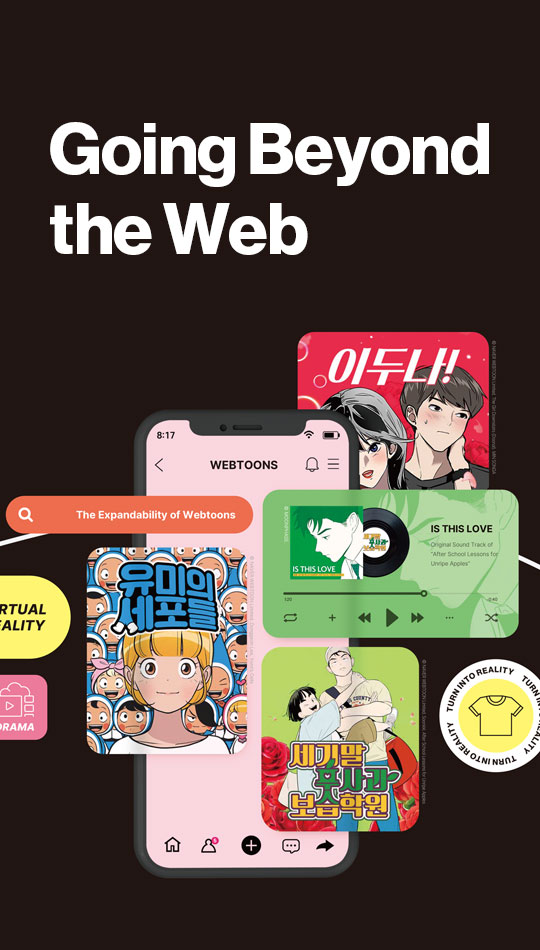
Writer. Kim Da Un
Media Metamorphosis
A number of Korean television shows have recently become global hits on major streaming sites, such as “A Killer Paradox,” “Duty After School,” “Moving,” “Mask Girl,” “Business Proposal” and “Sweet Home.” As it happens, those shows have something in common―they’re all adaptations of webtoons.
Korean webtoons have long served as the source material for other dramatic creations. If you’re going to produce media content, you need a story to back it up. Webtoons make that easy since they have a built-in script and storyboard. Popularity with mass consumers proves the story is solid, and the fanbase functions as a ready-made viewership, providing the conditions for guaranteed success.
That’s why Korean producers have been adapting so many webtoons as various forms of media―notably, not just films and TV shows. “Tower of God” was reborn as a collectible role-playing game (RPG) that faithfully reproduces the original. “Solo Leveling” was developed into an action game in which users play the main character of the webtoon and can incorporate their own unique fighting style. Concepts from “Solo Leveling” were also incorporated into the variety show “PLAYou Level Up,” and the webtoon “Lucky Romance” was also adapted for the stage. The success of these various productions has demonstrated webtoons’ limitless potential.
Webtoon publishers and platforms, which are by now fully cognizant of webtoons’ potential, are hard at work to encourage creative adaptations of webtoon stories. In fact, they even take into account the possibility of adaptations for the screen or other media during webtoons’ initial production. The Korean government is also actively supporting publishers and platforms to help these market trends gain momentum. Amid these developments, the biggest beneficiaries are likely consumers. Before long, we can expect to see a flood of media products based on webtoons.
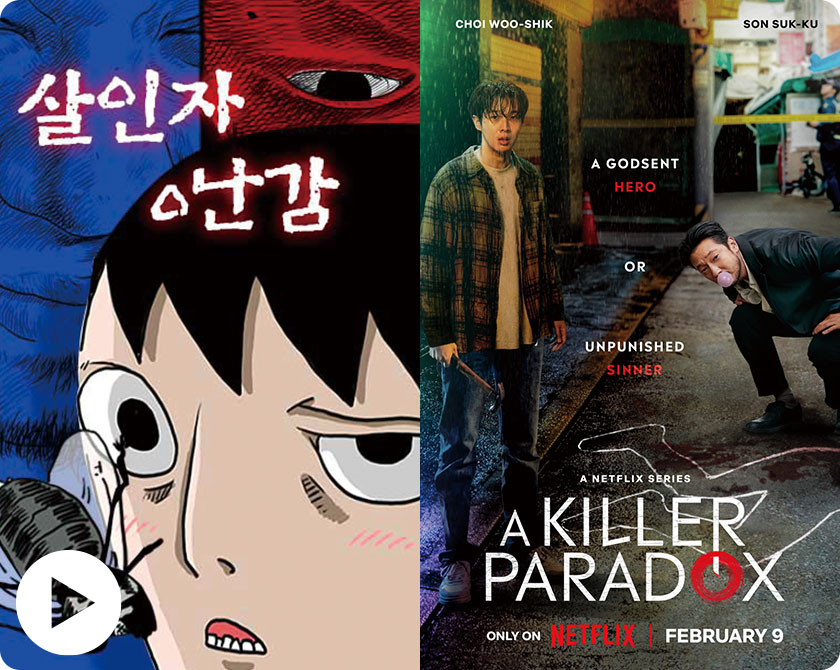 A Killer Paradox (2024)
A Killer Paradox (2024)A Netflix series based on the Naver webtoon of the same name by Kkomabi
ⓒ NAVER WEBTOON Limited. Kkomabi. A Killer Paradox / Courtesy of Netflix
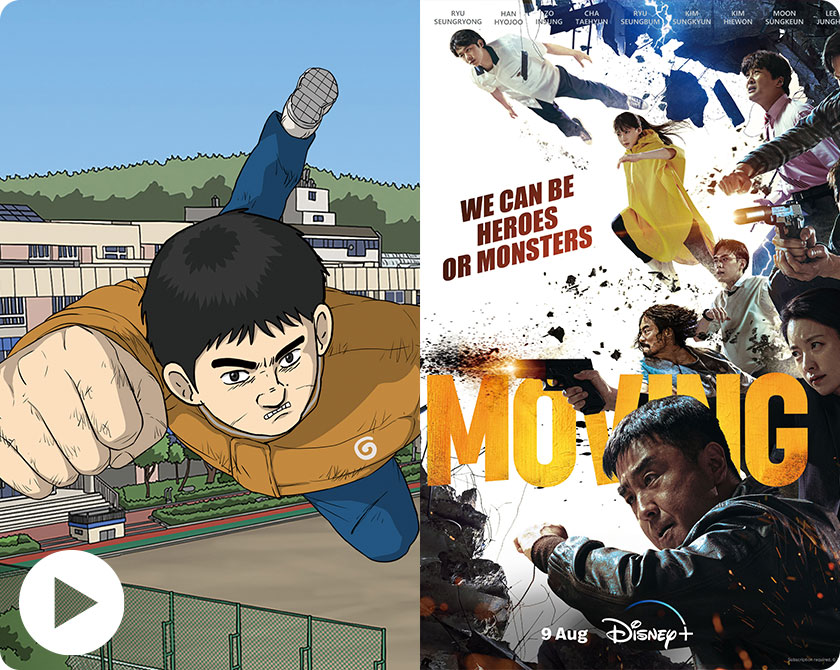 Moving (2023)
Moving (2023)A Disney Plus series based on the eponymous webtoon by Kang Full
ⓒ Kakao Entertainment, Kang Full / ⓒ Disney and its related entities.
More Features,
Better Technology
Even as webtoons are being reborn as all kinds of creative works, webtoons themselves are become richer and more sophisticated. One of the indicators of that change is the use of original soundtracks. Stories and music are inextricably linked: just think about the music swelling in the background of moving scenes in films and television shows. Onscreen drama and songs have always created synergy.
In the same way, webtoons are beginning to feature soundtracks that complement the story. The original songs that are being produced for webtoons today draw upon the webtoon’s fictional context to effectively convey the progress of the plot or the feelings of the characters. Soundtracks are also a great marketing tool since the songs bring the webtoon to a broader audience. That impact has been maximized recently as large numbers of K-pop artists perform for webtoon soundtracks. Songs from the soundtracks have topped various music charts, getting attention both in Korea and overseas and massively boosting the webtoons’ overseas readership. To be sure, K-pop artists have also benefited from this relationship since their songs are constantly in the minds of the readers of webtoons that are serialized for anywhere from one to three years.
If original soundtracks are a testament to the growing richness of the webtoon experience, VR webtoons speak to how sophisticated they have become. VR is an acronym for virtual reality, referring to a completely virtual space that only exists in the imagination. VR webtoons shut out the reader’s surroundings and immerse them in the webtoon shown on the screen. Readers are able to freely to explore the world of the webtoon. The stereophonic sound seems to bring the world of the comic to life, and interacting with three-dimensional characters draws readers even deeper into the VR world.
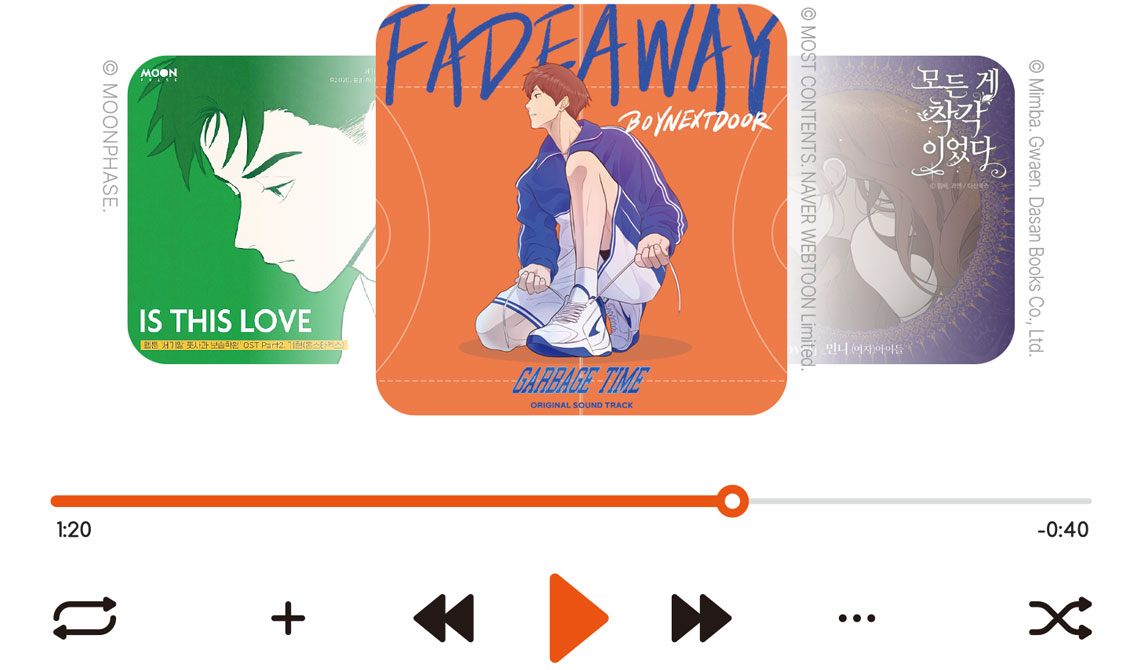
Bringing Imagination to Reality
One of the neat things about Korean webtoons is the bold inroads they’re making into our reality. Webtoon ideas and items are being turned into fan merchandise. To take one example, the main character of “Romance 101” is so into an organization that she always carries around a yellow planner. The platform that hosts “Romance 101” put a physical version of that planner on sale, letting fans who buy it to further immerse themselves in the webtoon, as if the main character were a real person and a friend of theirs.
That’s just one of a wide range of webtoon-related products running the gamut from food to attire. Fans of “Yumi’s Cells” can buy a tteokbokki (spicy rice cake) kit based on the dish made by a webtoon character who runs a snack shop. Another good example is merchandise inspired by the banners and lightsticks used to cheer on characters in “Debut or Die,” which is about people with an illness that will prove fatal unless they debut as a pop idol.
As we can see here, webtoon merchandise is more than just products based on the webtoon’s intellectual property (IP). By seeming to translate on-screen items into the outside world, this merchandise also serves as a mechanism for linking fans and the webtoon in various aspects of their everyday life.



